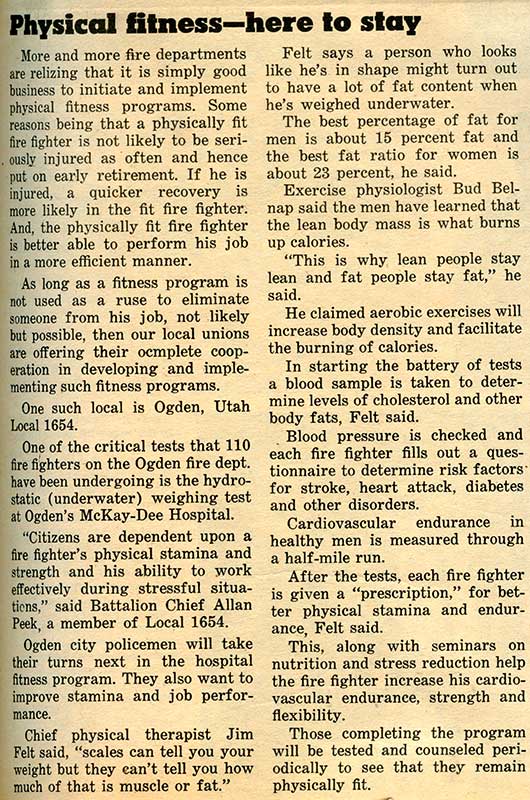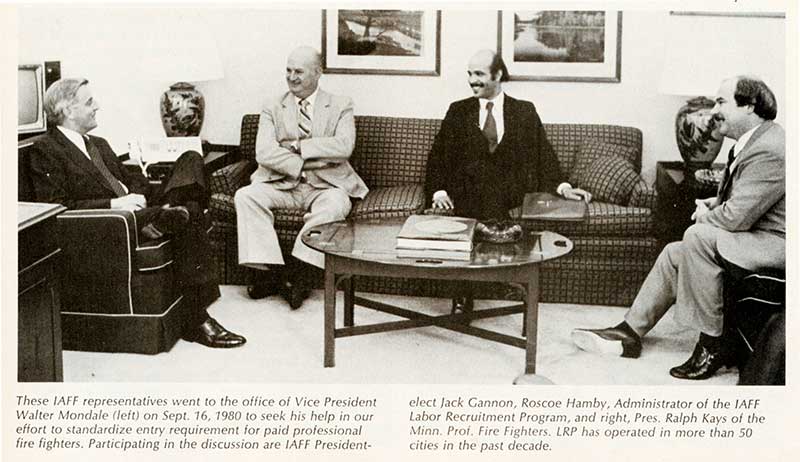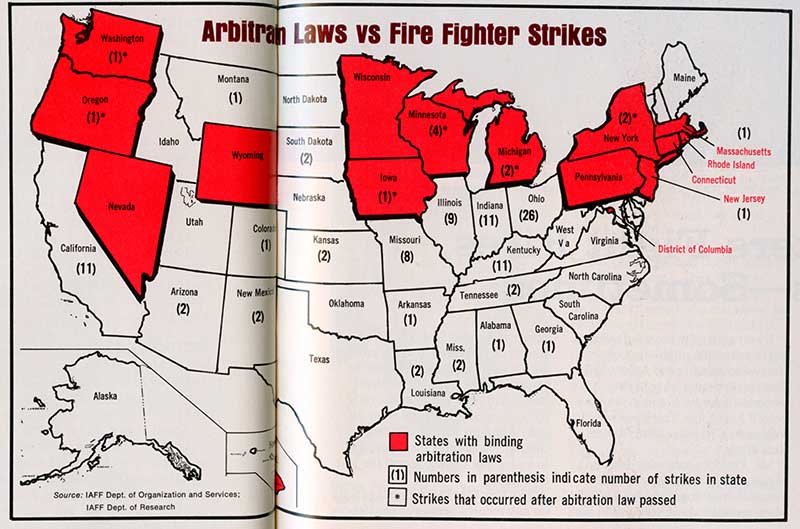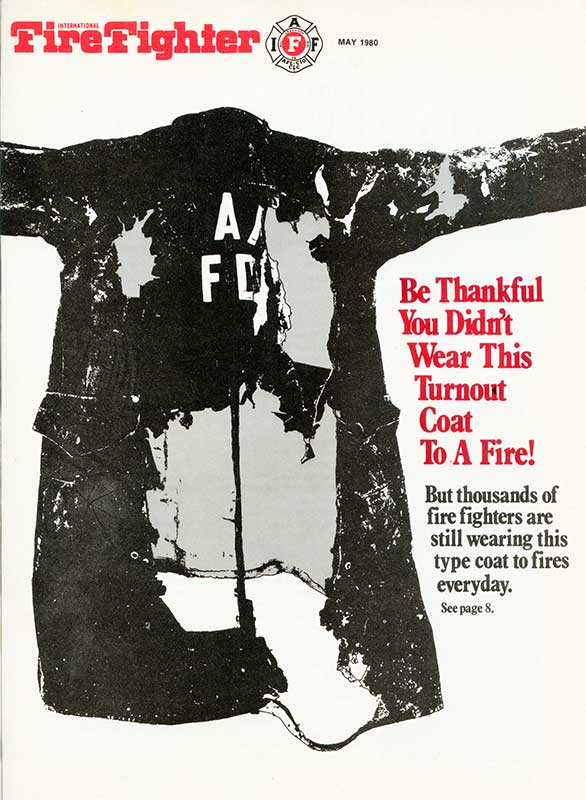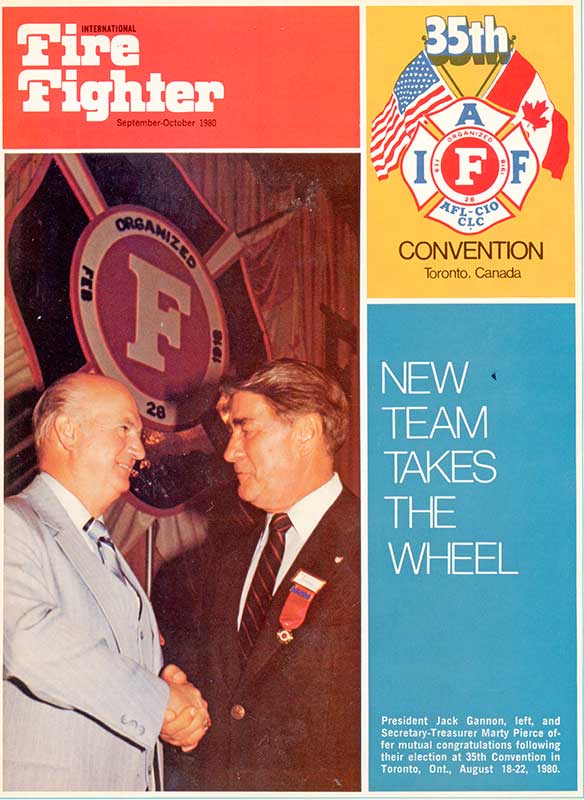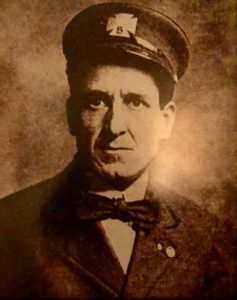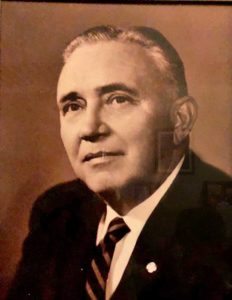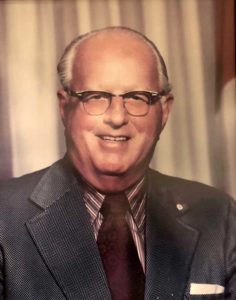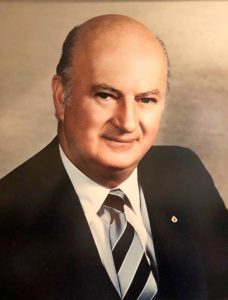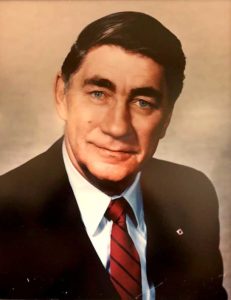The IAFF launches a petition drive to collect signatures of millions of Americans demanding the immediate and unconditional release of the hostages who have been held since November 4, 1979, at the American Embassy in Teheran.
Physical Fitness Programs
In the early 1980s, fire departments begin embracing physical fitness programs as long as they are “not used as a ruse to eliminate someone from his job.” Reasons for implementing fitness programs included the supposition that “a physically fit fire fighter is not likely to be seriously injured as often and hence put on early retirement.” One of the first locals to participate in a fitness program was Ogden, UT Local 1654.
Mourning Labor Leaders
The IAFF mourns the passing of two labor leaders, former AFL-CIO President George Meany and former IAFF Secretary-Treasurer George Richardson.
Disparity of Funds
IAFF President William H. McClennan and U.S. Fire Administration Administrator Gordon Vickery send a letter to the Washington Post regarding an article on the disparity of funds allocated towards the promotion of fire fighters versus mine workers’ safety, contending that fire fighter resources are much more limited, but health and safety issues are paramount nonetheless.
Public Employee Bargaining Laws
Fifteen state legislatures enact new arbitration laws, or amend existing ones, affecting public employees’ rights. Most enactments strengthen arbitration procedures to settle bargaining disputes, provide remedies for injured parties in unfair labor practice proceedings and permit negotiations of agency shop contracts.
IAFF Leaders Testify
IAFF President William H. McClennan and other IAFF leaders testify before the Senate Labor and Human Resources Committee on the Occupational Safety and Health Improvements Act of 1980, taking sharp exception to a bill that could exempt an estimated 90 percent of all workplaces from routine federal job safety inspections, potentially endangering fire fighters.
NBC’s “Prime Time Saturday”
NBC’s late-night weekly television program, “Prime Time Saturday,” deals with the abuse of pension programs by fire fighters and police officers. IAFF President William H. McClennan complains to NBC that these abuses are rare and that the segment is “cheap journalism by one of our largest television broadcasting chains.”
Women in the Fire Service
With the entry of women in the fire service, the IAFF compiles a directory of “practical information” to address recruitment, physical performance testing and training of qualified women.
Three Challenges
IAFF President William H. McClennan warns fire fighters of three challenges stemming from the problems of city financing: staffing, consolidation and privatization.
Educational TV Programming
IAFF President William H. McClennan appoints a committee to study the feasibility of entering into an agreement with the American Educational Television Network to produce and telecast a variety of educational programs for fire fighters via satellite transmission.
Palumbo Quote
“Fire today is not the same as it was 40 or 50 years ago. The very buildings we fight them in are different. Different in make, design and material, both interior and exterior. Synthetic rubber, plastic pipes, fabricated wood, chemical parts – how do they respond to fire and heat? What gases do they produce and what price must we pay to find out?”Frank Palumbo, IAFF Secretary-Treasurer (1972-1980)
New Injury Reporting System
The IAFF partners with RJF Associates to develop a new injury reporting system for fire fighters that determines what causes accidents rather than who is responsible for them. The NFPA and USFA collect and produce data on numbers, types and circumstances of civilian fire-related injuries but comparatively little about fire fighter injuries.
McClennan Testimony
The IAFF presents dramatic testimony at a congressional hearing on a bill to amend the Occupational Safety and Health Act (OSHA). General President McClennan speaks in opposition to Richard Schwieker’s (R-PA) bill to exempt 90 percent of all workplaces from routine federal job safety inspections. IAFF Burns Coordinator Tom Herz shows the charred turnout gear that failed to protect him, resulting in third-degree burns on over 80 percent of his body and eight months of hospitalization.
“In these days of budget cutting and tightening of purse strings and with the absence of mandated and enforced requirements, many of the public employers have put off the purchase of personal protective equipment for fire fighters.” He further noted that “after eight years of effort by the IAFF in getting OSHA to understand the seriousness of the occupational hazards involved in firefighting, we are fearful that our work will be nullified by the OSHA enforcement bill before us.”IAFF President William H. McClennan (1969-1980)
McClennan Honored
Retiring IAFF President William H. McClennan is honored for his 40 years of dedication to the fire service. More than 500 guests attend the event and donate more than $13,000 to the IAFF Scholarship Fund in his honor.
Personal Protective Equipment
U.S. Secretary of Labor Ray Marshall signs into law standards regulating personal protective equipment for fire brigade personnel that serve as fire suppression forces in private industry.
Death and Injury Survey
The IAFF’s “1979 Annual Death and Injury Survey” shows that a leveling off of deaths and injuries may be taking place. But overall, the numbers remain high.
IAFF and MDAA Meetings
The IAFF and the Muscular Dystrophy Associations of America plan a series of six meetings in 17 states to encourage the greatest participation possible by membership in the MDAA’s 1980 fundraising campaign and annual Labor Day Telethon.
Canadian Standards Association
The Canadian Standards Association meets to consider the development of improved standards for self-contained breathing apparatus (SCBA) and the use of personal alarm devices for fire fighters.
35th IAFF Convention
The IAFF holds its 35th Convention in Toronto, Canada. John A. Gannon is elected IAFF president and Martin E. Pierce is elected IAFF secretary-treasurer.
List of All IAFF Conventions →
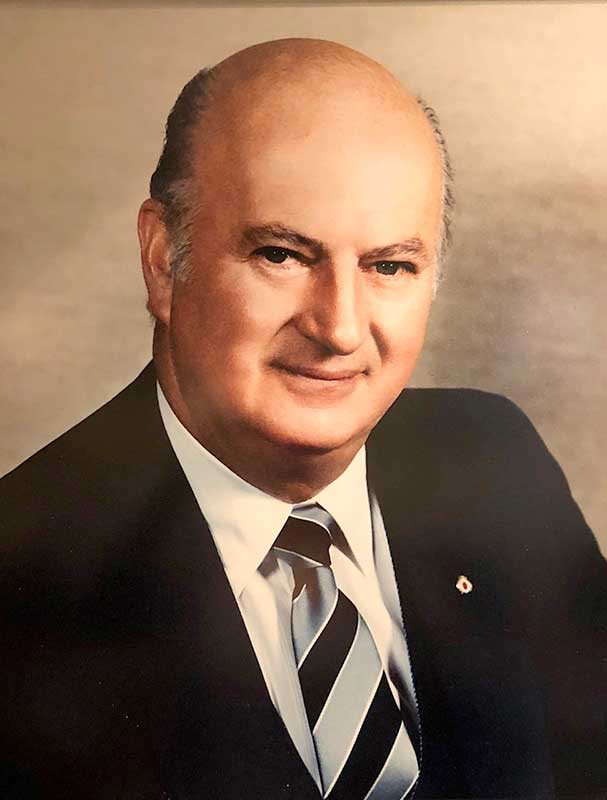
John A. Gannon

Martin E. Pierce
NYC Fire Fighters Killed
June 27, 1980
Two New York City fire fighters are killed during a building fire due to an unsafe nylon rope that failed to lower them to safety. A fire fighter was trapped on the seventh floor, and a second heard his cries for help and swung down from a roof on a nylon rope to rescue him. As they were about to be lowered to safety, the rope suddenly parted and both men fell to their deaths. Five weeks earlier, the fire department had been notified that their nylon ropes had been certified inferior and dangerous.
“Third Service”
The IAFF closely monitors the U.S. Department of Transportation’s move to establish a “Third Service” composed of EMS personnel, separate from fire and police safety forces.
EMS Seminars
The IAFF signs a contract with the U.S. Fire Administration to conduct a series of emergency medical service management seminars.
Cost-Cutting Measures
When Jack Gannon was elected president, he was informed that the IAFF’s unpaid financial obligations were $262,000 but an audit reveals that the IAFF’s debt as of September 30 totals $882,142.29. Cost-cutting measures include a reduction in the cost of operations, such as publishing the International Fire Fighter in newspaper form beginning in January 1981.
72.9 Percent Organized
A newly published government report, based on the 1977 Census of Governments, indicates that professional fire fighters are the most highly organized of all employees with 72.9 percent holding union membership.
Legal Problems Studied
Attorneys representing 11 IAFF districts attend a legal seminar to study some of the special legal problems that face fire fighters throughout the United States and Canada, including impasse and strike legislation problems; supervisory representation issues; federal constitutional issues arising in disciplinary proceedings; federal law prohibiting age discrimination; and the International Constitution and By-laws.
American Red Cross
The IAFF teams up with the American Red Cross to establish two prestigious lifesaving awards to be given to fire fighters who have saved a life using techniques learned during Red Cross training.
